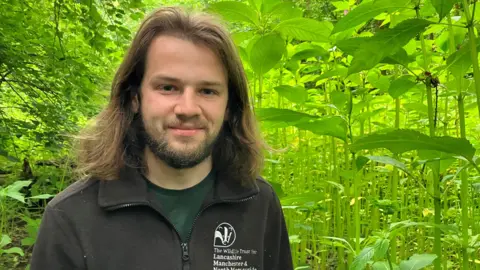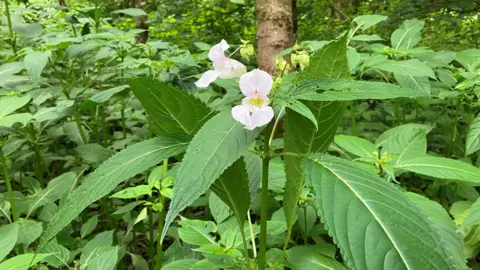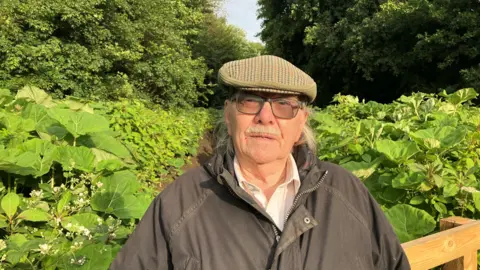Appeal to help clear invasive plant taking over parks
 BBC
BBCA wildlife charity has launched an appeal for volunteers over the summer to help clear an invasive plant which stops native species from growing in the wild.
The Lancashire, Manchester and North Merseyside Wildlife Trust's "Balsam Busters" group works to remove Himalayan Balsam, first introduced to the UK by Victorian botanists in 1839, from local beauty spots.
Joel Micklethwaite, from the trust, said it was important to remove as many of the plants as possible before the end of summer, when they can each drop up to 800 seeds.
"It can grow more or less anywhere, especially in shady woodlands," he said, adding that "it's prolific to say the least".

The plant, which can grow to about 6ft 5in (2m) tall, blooms with pink or purple scented flowers from June to November and was initially introduced to Britain as an ornamental garden plant.
However, it is now considered a problematic weed since it crowds out native species and causes soil erosion along water courses.
Mr Micklethwaite said while hundreds of volunteers from different groups got together to tackle the plant at designated events in nature reserves, everyone could do their bit within their local community.
He said: "If you have a local spot - or even just your garden where it's encroaching - it's better to keep it out of places where it isn't.
"Especially if you can plant up afterwards with native plants."

Himalayan balsam needs to be pulled out by hand or cut as low as possible before it seeds in order to be removed effectively.
Roy Anderton ,90, from Hindley, Greater Manchester, said he tries to cut the plant back when he comes across it while walking his dog in the nearby Low Hall Nature Reserve.
He said: "When the flowers are dying back, I cut the plant off below the node [where new stems and leaves grow].
"If you don't do that, it branches out again."
Listen to the best of BBC Radio Manchester on Sounds and follow BBC Manchester on Facebook, X, and Instagram. You can also send story ideas via Whatsapp to 0808 100 2230.
